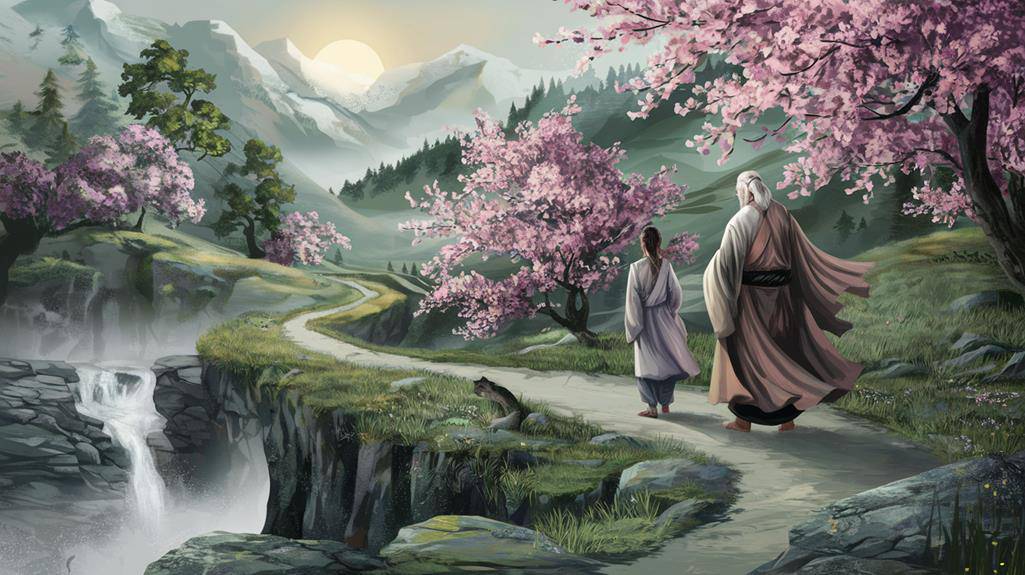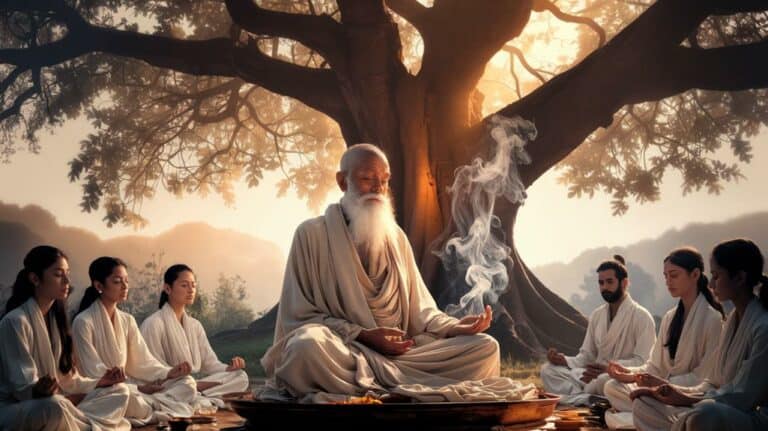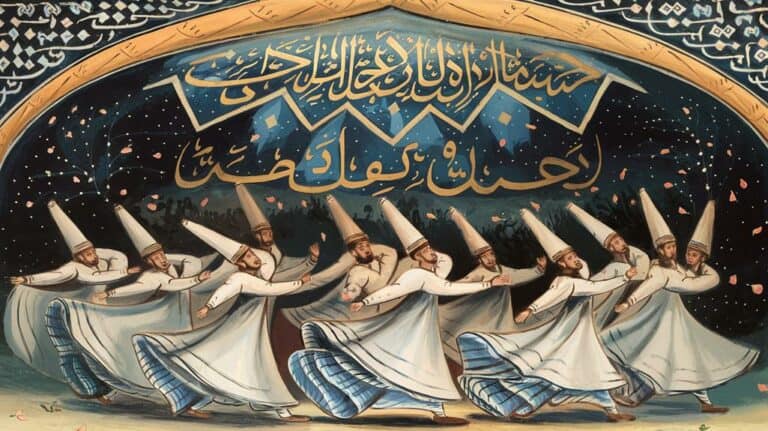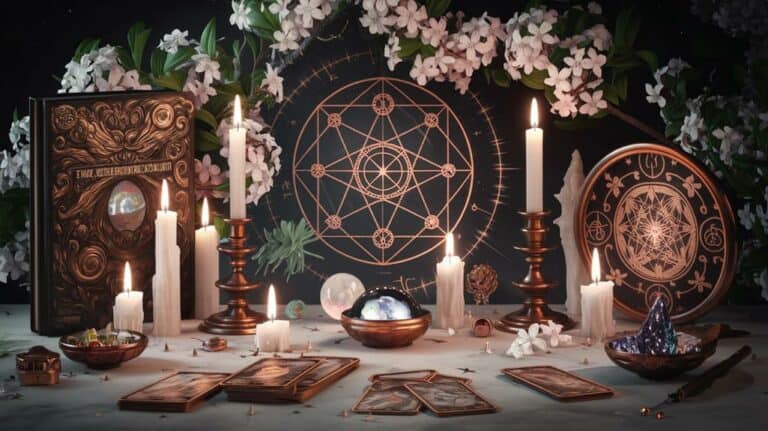7 Taoist Tales That Teach Important Life Lessons
You’ll find that ancient Taoist wisdom doesn’t lecture or demand – it simply reveals truths through stories that have endured for thousands of years. These seven tales carry profound messages about life’s paradoxes, the nature of perspective, and the art of letting go. As you explore each narrative, you’ll discover how a dreaming butterfly, an empty tea cup, and a skilled woodcarver can transform your understanding of existence. Whether you’re seeking clarity in confusion or simplicity in chaos, these timeless parables offer insights that remain surprisingly relevant to your modern life. Let’s uncover what these ancient storytellers knew about finding peace and purpose.
The Butterfly Dream
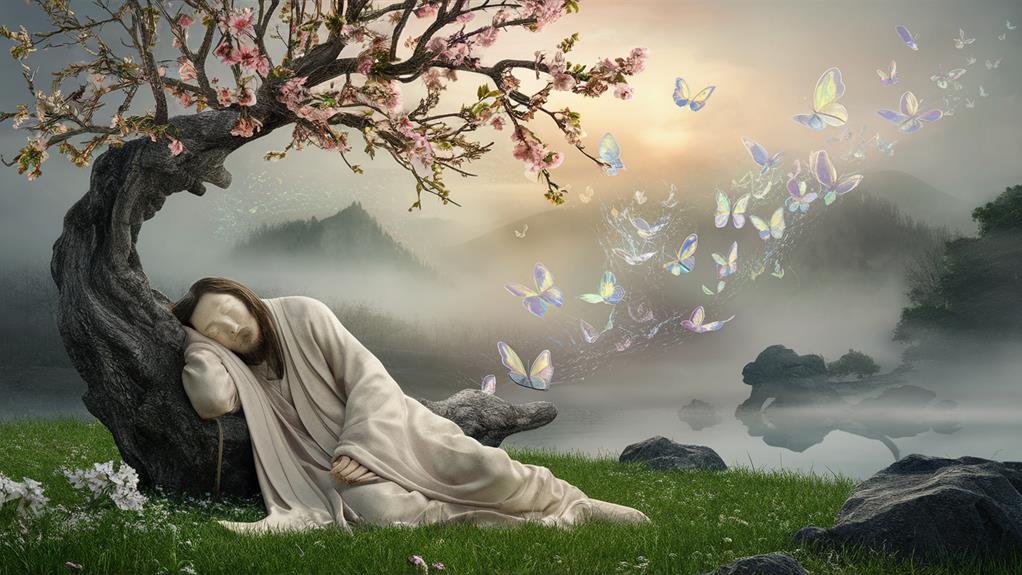
One of Taoism’s most famous parables comes from philosopher Zhuangzi, who dreamed he was a butterfly fluttering through the air. In his dream, he soared freely without a care, unaware of his human existence.
Upon waking, he couldn’t determine if he was Zhuangzi who’d dreamed of being a butterfly or a butterfly now dreaming of being Zhuangzi.
You’ll find this tale challenges your perception of reality and identity in profound ways. When you consider the boundaries between dreaming and waking life, where do you draw the line?
Your consciousness shifts between states, and you’re changed by each experience, yet something of your essence remains constant. The butterfly doesn’t question its nature, and perhaps that’s the deepest wisdom of all.
This parable invites you to release your grip on fixed identities and embrace life’s fluid nature. You’re not bound by rigid definitions of self – you’re as free as Zhuangzi’s butterfly to transform and evolve.
When you let go of certainty about who you are, you’ll discover the liberation that comes from accepting life’s magnificent mysteries.
The Empty Cup
Among the most enduring Taoist parables stands the story of the empty cup, in which a learned scholar visits a Zen master seeking wisdom. As the master begins to pour tea into the scholar’s cup, he doesn’t stop when it’s full, causing the hot liquid to overflow. When the frustrated scholar protests, the master delivers his profound lesson: like this cup, you’re too full of your own opinions and speculations to receive new wisdom.
You’ll find that this tale speaks directly to your journey toward enlightenment, challenging you to examine how your preconceptions might be blocking your path to deeper understanding. When you’re filled to the brim with what you think you know, there’s no space for fresh insights to enter.
The master’s seemingly simple action reveals a universal truth: true learning requires emptying yourself of presumptions and creating space for new perspectives. You must become like an empty vessel, ready to receive without the filters of pre-existing knowledge clouding your perception.
It’s only when you’ve cleared your cup that you can truly begin to fill it with wisdom’s pure essence.
The Lost Horse Returns
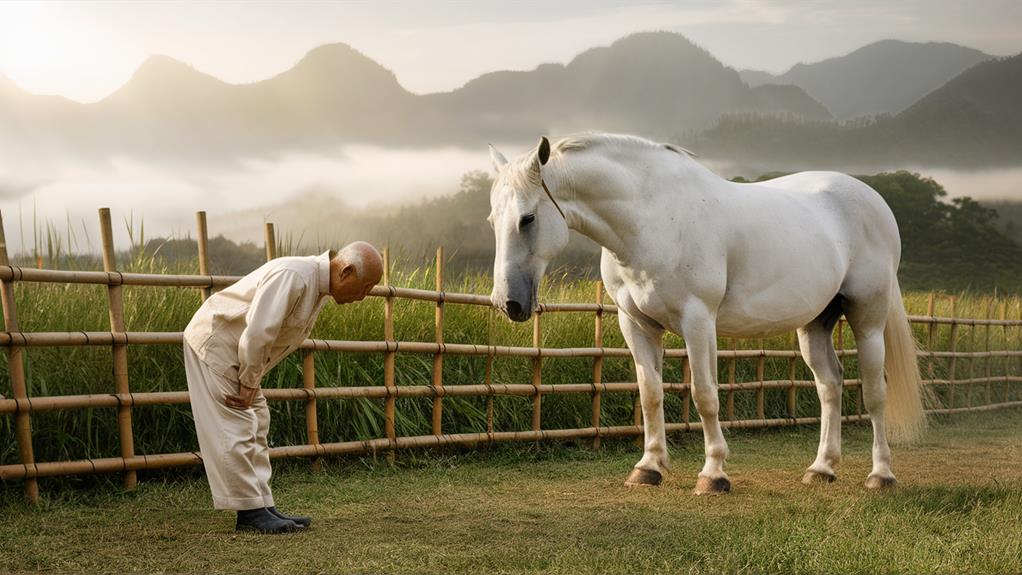
While the empty cup teaches us about releasing preconceptions, the tale of the lost horse illuminates another essential Taoist principle: the fluid nature of fortune and misfortune.
In this timeless story, you’ll encounter a wise farmer whose prized horse escapes into the mountains. When neighbors console him over his loss, he simply responds, “Who knows what’s good or bad?”
Days later, the horse returns with a wild stallion. The neighbors celebrate his good fortune, but again, the farmer maintains his perspective: “Who can tell if this is fortune or misfortune?”
When his son breaks his leg trying to tame the wild horse, and later avoids conscription due to his injury, the pattern of intertwined fortune and misfortune continues.
You’ll find in this tale a profound truth about life’s perpetual flow. What appears as blessing or curse often reveals itself as its opposite, teaching you to release judgment and embrace life’s natural unfolding.
Through this understanding, you’ll discover a path to freedom from the exhausting cycle of emotional reactions to circumstances, allowing you to rest in the wisdom of “who knows?”
Swimming With the Fish
How can you find peace in life’s chaotic currents? Consider the ancient Taoist tale of Master Zhuang, who observed fish swimming freely in a clear stream. When his companion asked how he could know the fish were happy, Zhuang replied that by watching their natural movements, he understood their contentment.
You’ll discover that like those fish, you don’t need to fight against life’s flow. Instead of struggling upstream against forces beyond your control, you can learn to move with gentle purpose through life’s waters.
The fish don’t question their path or overthink their movements – they simply exist in perfect harmony with their environment.
When you feel overwhelmed by life’s complexities, remember that you’re part of a larger flow. Your natural state isn’t one of resistance but of acceptance.
Just as fish don’t try to change the river’s course, you’ll find greater peace by accepting what’s while skillfully maneuvering within it. This doesn’t mean passive surrender, but rather an active engagement with life that honors its natural rhythms and your place within them.
Three Vinegar Tasters
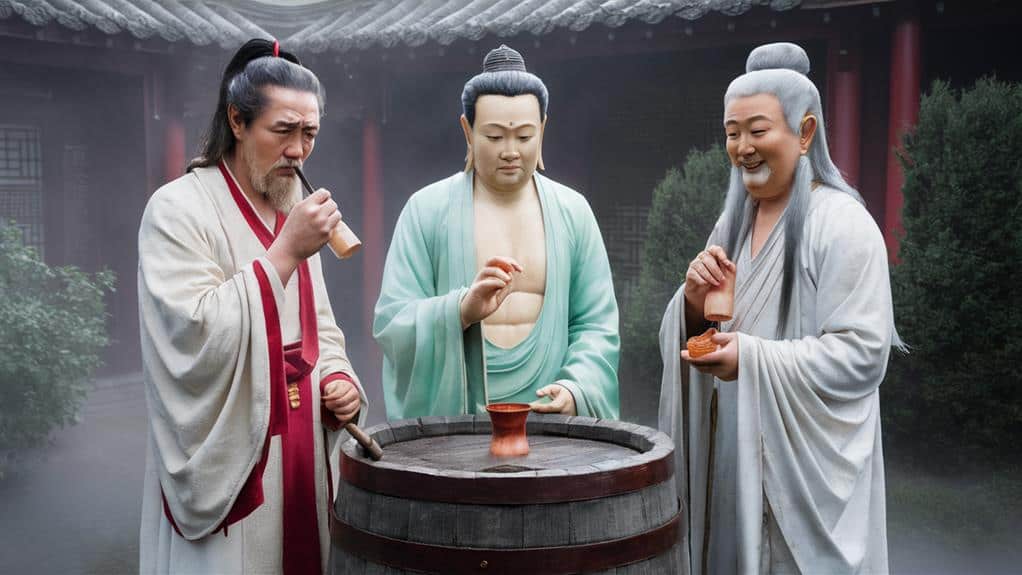
The ancient parable of the Three Vinegar Tasters builds on this wisdom of perspective and acceptance. In this tale, you’ll find Confucius, Buddha, and Lao Tzu gathered around a vat of vinegar, each taking a taste and reacting according to their philosophical outlook. Their responses reveal profound truths about how we perceive life’s experiences.
When you consider Confucius’s sour expression, you’ll understand his view that life needs rules and refinement to overcome its natural bitterness. Buddha’s bitter reaction reflects his belief that life is suffering, requiring detachment from worldly desires.
Yet it’s Lao Tzu’s response that embodies Taoist wisdom – he smiles, accepting the vinegar’s natural taste without judgment. You’ll find that his reaction isn’t about positive thinking; it’s about embracing life’s inherent nature.
Through this simple act of tasting vinegar, you’re invited to examine your own reactions to life’s experiences. The parable suggests that your perspective shapes your reality, and true wisdom lies not in trying to change the essence of things, but in accepting them as they are.
The Woodcarver’s Secret
Among Taoist parables, a master woodcarver’s story stands as a powerful lesson in achieving excellence through inner harmony.
You’ll discover how this craftsman, when asked about his flawless technique, reveals that he doesn’t think about technique at all. Instead, he enters a state of perfect alignment with the wood, letting go of all preconceptions and mental clutter.
Before touching his tools, the woodcarver spends days observing the untouched wood, sensing its essence and natural form. He’ll tell you that success comes not from imposing his will, but from allowing the wood’s inherent nature to guide his hands.
Through fasting and meditation, he clears his mind until the separation between carver and material dissolves.
You’ll find that this tale isn’t merely about woodworking – it’s about approaching any endeavor with profound respect and receptivity.
When you release your ego‘s need to control and instead align with the natural flow of things, you’ll discover that mastery emerges from surrender rather than force.
The woodcarver’s secret isn’t in his tools or techniques, but in his ability to become one with his work.
The Joy of Simple Living

Much like the woodcarver’s path to mastery through letting go, Taoist wisdom teaches us that true contentment flows from simplifying our lives.
When you release the need for excess possessions, status symbols, and societal expectations, you’ll discover an authentic freedom that can’t be bought or sold.
You’ll find that life’s richest moments often emerge from its simplest elements: the warmth of morning sunlight, the rhythm of your breath, or the gentle rustle of leaves in the wind.
As you pare away life’s complexities, you’ll uncover a profound sense of peace that’s been waiting beneath the surface all along.
The path to simple living isn’t about deprivation – it’s about discernment.
You’re not losing anything of real value when you choose to live with less; instead, you’re gaining clarity, purpose, and deeper connection to the present moment.
By embracing simplicity, you align yourself with the natural flow of existence, where every breath becomes a meditation and every moment holds the potential for enlightenment.
This is the essence of Taoist contentment: finding abundance in less, and freedom in letting go.



